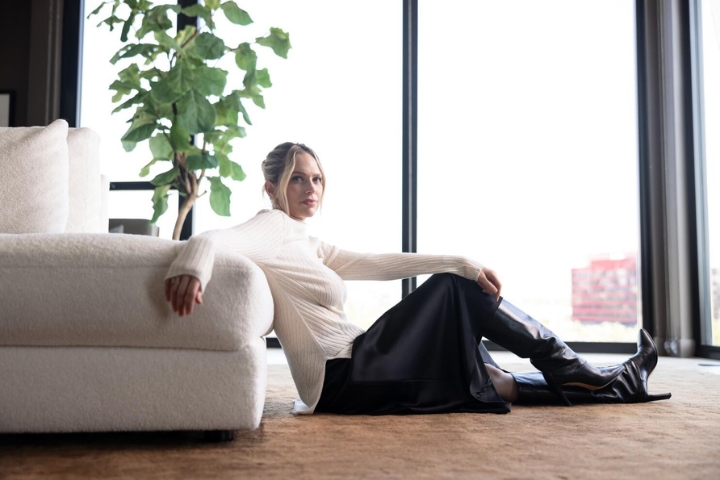Erin Foster, creator of the Netflix series Nobody Wants This, has addressed criticism regarding the show’s depiction of Jewish women, which some have labeled as stereotypical and negative. In a recent interview, Foster expressed the importance of sharing positive Jewish stories, especially in a time when antisemitism is on the rise. The series, which follows an agnostic woman navigating her relationship with a rabbi, has sparked discussions about representation and cultural accuracy within the Jewish community. Foster’s comments shed light on her creative intentions and the complexities of portraying diverse narratives in media.
The Controversy Surrounding Nobody Wants This
Since its release, Nobody Wants This has faced backlash for its portrayal of Jewish characters, particularly the women in Noah’s life who are depicted as antagonistic towards his non-Jewish girlfriend. Critics argue that these portrayals reinforce negative stereotypes about Jewish women, labeling them as controlling and overbearing. This controversy has ignited a broader conversation about how Jewish characters are represented in popular culture.
“I think we need positive Jewish stories right now,” she explained. “I think it’s interesting when people focus on, ‘Oh, this is a stereotype of Jewish people,’ when you have a rabbi as the lead. A hot, cool, young rabbi who smokes weed. That’s the antithesis of how people view a Jewish rabbi, right?”
In response to the criticism, Erin Foster emphasized the need for positive Jewish narratives in today’s climate. She highlighted that while some may focus on perceived stereotypes, the show features a diverse range of characters, including a “hot, cool, young rabbi” who challenges traditional views. Foster believes that it’s essential to balance creativity with authenticity while acknowledging that any portrayal will inevitably face scrutiny.
The Importance of Positive Jewish Stories
Foster articulated her belief that now is a crucial time for uplifting positive stories within the Jewish community. She pointed out that media representations can significantly influence public perception and understanding of cultural identities. By sharing her own experiences as someone who converted to Judaism, Foster aims to provide a nuanced perspective that celebrates Jewish culture rather than reducing it to stereotypes.
“It’s important that I had Noah’s parents in the show be immigrants because immigrant culture is very different than American Jewish culture,” she said. “Simon’s parents fled the Soviet Union because they were Jewish. That is a very different experience than someone who grew up in L.A., not being exposed to the kind of antisemitism that they were exposed to. It means something different. It’s a much more sensitive topic, and it’s much closer to their hearts.”
“That is why I don’t feel that the parents are stereotypes as much,” she added. “Immigrant culture can be very insular and fearful of outsiders, and there’s a good reason for that. I wanted to play into that, because it’s an added layer of cultural differences between these two people.”
As discussions around Nobody Wants This continue, Erin Foster remains committed to addressing feedback while staying true to her vision for the series. With the show’s themes rooted in personal experience and cultural exploration, she hopes to foster greater understanding and appreciation for Jewish stories in mainstream media.




GIPHY App Key not set. Please check settings